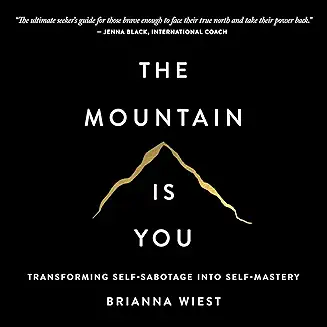
Self-sabotage is a complex phenomenon often rooted in conflicting desires. On the surface, it seems like a destructive behavior, but in reality, it serves an unconscious purpose: to protect us from fears, discomfort, or perceived threats. According to Brianna Wiest’s The Mountain Is You, self-sabotage arises when we have two opposing desires—one conscious and the other subconscious. While we consciously aim to move forward, subconscious fears hold us back. Redefining self-sabotage as a protective mechanism helps us understand that our actions are not inherently harmful but rather misguided attempts at coping.
Coping and Comfort Zones
Many behaviors associated with self-sabotage—whether in work, relationships, or personal goals—are often linked to unmet emotional needs. For instance, some might sabotage their careers or relationships because they fear success or vulnerability. This is where the concept of freedom from self-sabotage becomes essential. Wiest explains that to overcome these patterns, we must first identify the root cause of our fears. Only then can we find healthier alternatives to meet our emotional needs. Self-sabotage in relationships is particularly common, where patterns of rejection or avoidance often stem from childhood traumas or unresolved attachments.
One example of self-sabotage relationships involves a fear of vulnerability. People may push away partners or avoid emotional intimacy because they equate love with potential loss. This defensive mechanism protects them from pain but also prevents them from experiencing genuine connection. In contrast, overcoming these fears can open the door to deeper relationships and greater emotional fulfillment.
Redefining Success and Fulfilling Emotional Needs
Understanding that self-sabotage serves an unconscious need allows us to redefine success. Wiest points out that many people sabotage their success because it threatens their subconscious beliefs. For example, someone may associate wealth with greed and subconsciously undermine their financial growth because it contradicts their deeper values. By reevaluating these beliefs, we can break free from limiting patterns and create healthier associations with success.
Books like Stop Self-Sabotage highlight the importance of developing emotional intelligence and resilience. Wiest emphasizes that it’s not just about stopping negative behaviors but also about nurturing positive, sustainable changes in our lives. To achieve freedom from self-sabotage, we must confront the emotions we’ve been avoiding—whether it’s fear, anger, or sadness. Doing so allows us to take control of our actions and align them with our conscious desires.
Conclusion: The Path Forward
In redefining self-sabotage, it’s crucial to recognize that it’s not a flaw but a coping strategy developed to protect ourselves from discomfort or perceived threats. Once we understand this, we can begin addressing the real emotional needs that underlie these behaviors. Through self-awareness, emotional intelligence, and resilience, we can break free from these patterns and achieve the freedom from self-sabotage we seek in all areas of life—from our relationships to personal success.




